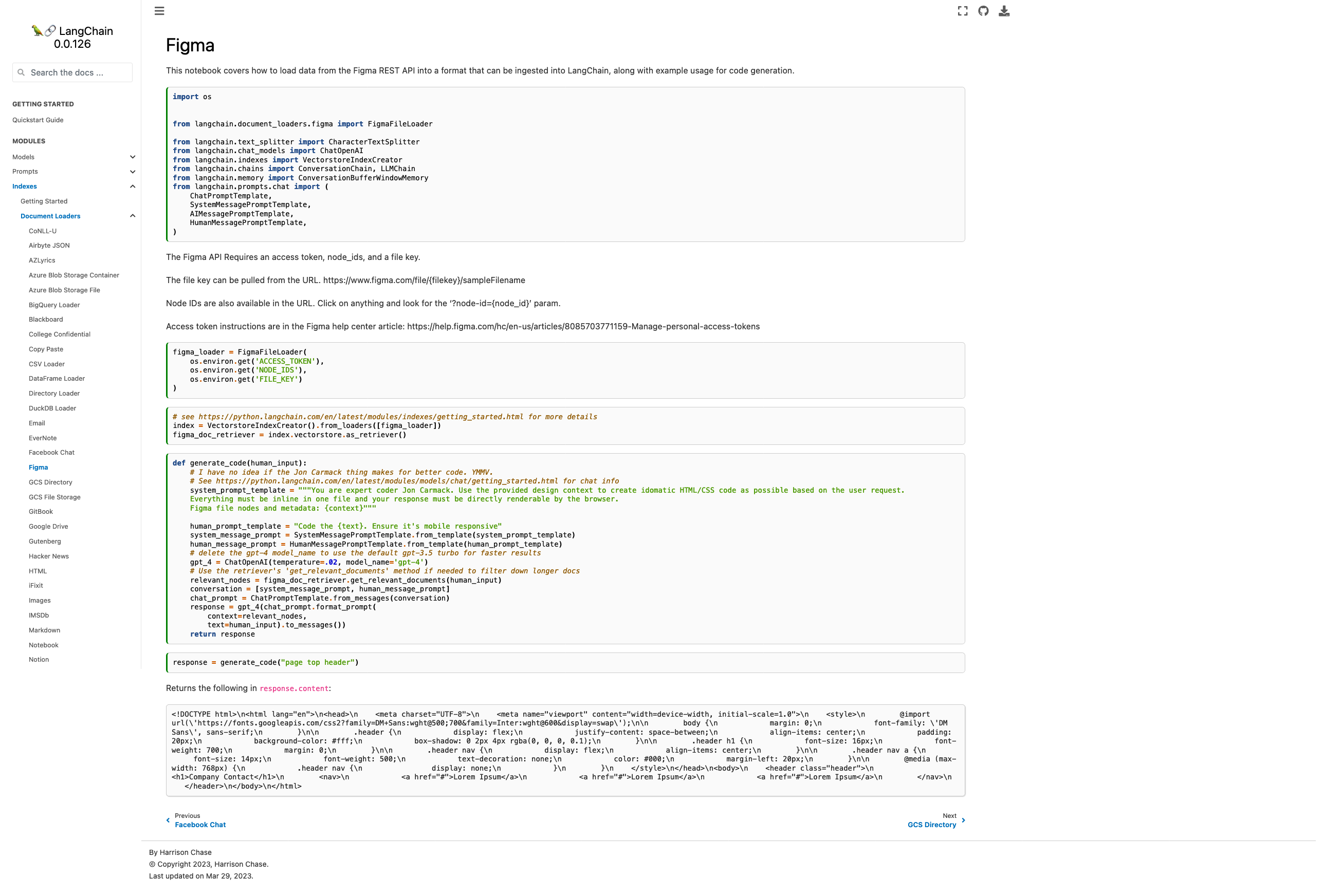- Current docs are pointing to the wrong module, fixed
- Added some explanation on how to find the necessary parameters
- Added chat-based codegen example w/ retrievers
Picture of the new page:

Please let me know if you'd like any tweaks! I wasn't sure if the
example was too heavy for the page or not but decided "hey, I probably
would want to see it" and so included it.
Co-authored-by: maxtheman <max@maxs-mbp.lan>
This PR adds Notion DB loader for langchain.
It reads content from pages within a Notion Database. It uses the Notion
API to query the database and read the pages. It also reads the metadata
from the pages and stores it in the Document object.
# What does this PR do?
This PR adds similar to `llms` a SageMaker-powered `embeddings` class.
This is helpful if you want to leverage Hugging Face models on SageMaker
for creating your indexes.
I added a example into the
[docs/modules/indexes/examples/embeddings.ipynb](https://github.com/hwchase17/langchain/compare/master...philschmid:add-sm-embeddings?expand=1#diff-e82629e2894974ec87856aedd769d4bdfe400314b03734f32bee5990bc7e8062)
document. The example currently includes some `_### TEMPORARY: Showing
how to deploy a SageMaker Endpoint from a Hugging Face model ###_ ` code
showing how you can deploy a sentence-transformers to SageMaker and then
run the methods of the embeddings class.
@hwchase17 please let me know if/when i should remove the `_###
TEMPORARY: Showing how to deploy a SageMaker Endpoint from a Hugging
Face model ###_` in the description i linked to a detail blog on how to
deploy a Sentence Transformers so i think we don't need to include those
steps here.
I also reused the `ContentHandlerBase` from
`langchain.llms.sagemaker_endpoint` and changed the output type to `any`
since it is depending on the implementation.
Fixes the import typo in the vector db text generator notebook for the
chroma library
Co-authored-by: Anupam <anupam@10-16-252-145.dynapool.wireless.nyu.edu>
add the state_of_the_union.txt file so that its easier to follow through
with the example.
---------
Co-authored-by: Jithin James <jjmachan@pop-os.localdomain>
# Description
Add `RediSearch` vectorstore for LangChain
RediSearch: [RediSearch quick
start](https://redis.io/docs/stack/search/quick_start/)
# How to use
```
from langchain.vectorstores.redisearch import RediSearch
rds = RediSearch.from_documents(docs, embeddings,redisearch_url="redis://localhost:6379")
```
This PR:
- Increases `qdrant-client` version to 1.0.4
- Introduces custom content and metadata keys (as requested in #1087)
- Moves all the `QdrantClient` parameters into the method parameters to
simplify code completion
Checking if weaviate similarity_search kwargs contains "certainty" and
use it accordingly. The minimal level of certainty must be a float, and
it is computed by normalized distance.
### Description
This PR adds a wrapper which adds support for the OpenSearch vector
database. Using opensearch-py client we are ingesting the embeddings of
given text into opensearch cluster using Bulk API. We can perform the
`similarity_search` on the index using the 3 popular searching methods
of OpenSearch k-NN plugin:
- `Approximate k-NN Search` use approximate nearest neighbor (ANN)
algorithms from the [nmslib](https://github.com/nmslib/nmslib),
[faiss](https://github.com/facebookresearch/faiss), and
[Lucene](https://lucene.apache.org/) libraries to power k-NN search.
- `Script Scoring` extends OpenSearch’s script scoring functionality to
execute a brute force, exact k-NN search.
- `Painless Scripting` adds the distance functions as painless
extensions that can be used in more complex combinations. Also, supports
brute force, exact k-NN search like Script Scoring.
### Issues Resolved
https://github.com/hwchase17/langchain/issues/1054
---------
Signed-off-by: Naveen Tatikonda <navtat@amazon.com>